by Venchito Tampon Jr | Last Updated on February 8, 2021

Research is not “good research” until it is seasoned with all the right keywords. We cannot simply uncover prospects that are relevant as well as insightful if we do not employ the correct strategies. Having said that – keyword generation is, in my opinion, the heart of every campaign. After all, how can we ever expect to reach our audience without first wielding a well-thought-out string of words?
To help us navigate the waters of “keyword inception”, let us first go back to its root. A keyword is commonly defined as a word or concept of awesome significance. For us to come up with a great blog roster, we need to make sure the phrases we use in research will coincide with those utilized by our target prospects.
Another, looser translation of the term is “password”. Personally, I very much like the concept of decoding a password in relation with finding the most effective words to use for link prospecting. Not unlike our search queries, passwords unlock a bunch of possibilities.
As you probably understand, there are a lot of factors to consider when it comes to choosing your terms. In our industry, the most commonly used keywords are categorized under three types: generic, specific, and long tail.
Let’s first take some time to understand these keyword types better before we go on.
GENERIC KEYWORDS
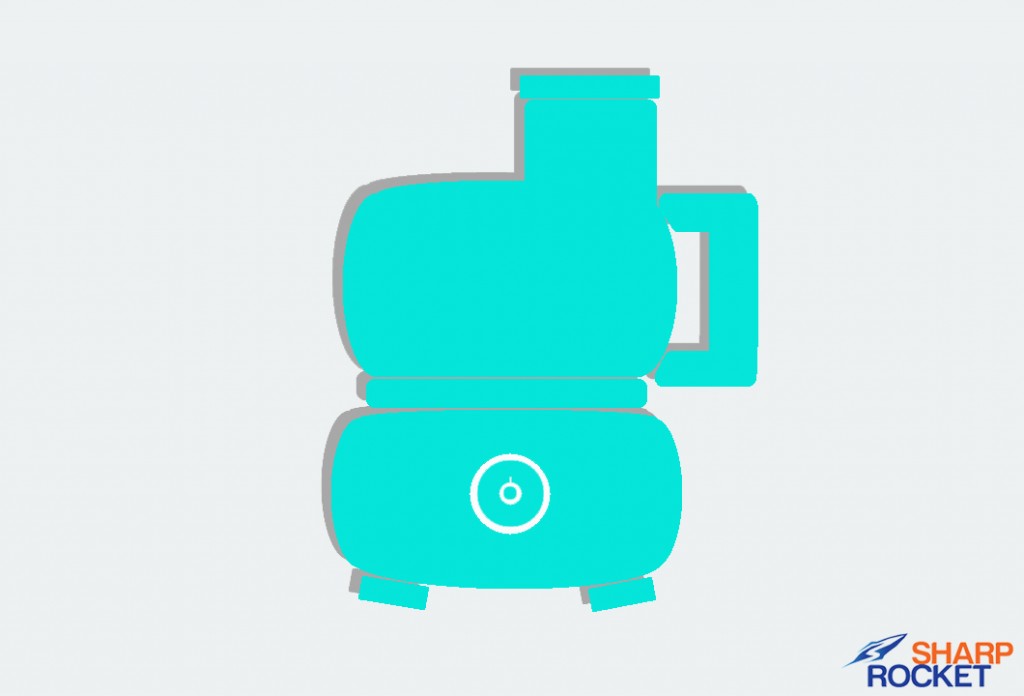
As the term suggests, “generic” keywords are unspecific and all-encompassing. You can expect to get thousands, even millions of results using this type of keywords. An example is using the words “food processor” in your search query.
SPECIFIC KEYWORDS
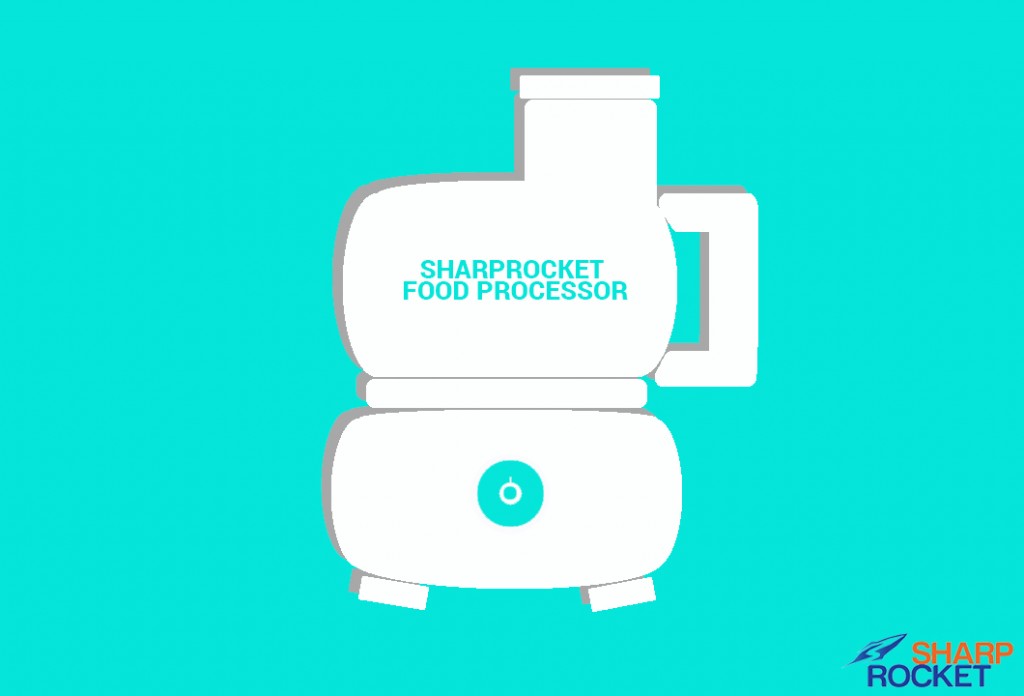
This type of keyword is obviously a lot more particular than the former. In relation with our previous example of “food processor”, a specific example would be a branded version – “SharpRocket Food Processor”
LONG TAIL KEYWORDS
Lastly, long tail keywords are most commonly phrases or even a complete sentence typed into the search bar. Now, a perfect example for this would be “best way to operate a food processor”. Basically, a set of four or more keywords is considered “long tail”.
Going back to the main point of this article, how do we come up with the best possible keywords and/or keyword combinations for maximum results? Of course, this all leads back to a rather popular answer: common sense.
1. THESAURUS
The most obvious way to come up with a fresh set of keywords is by making use of the thesaurus. This tool has, no doubt, been introduced to all of us way before we started messing around with computers. Simply put, it gives you a little index of words in groups of synonyms and related concepts.
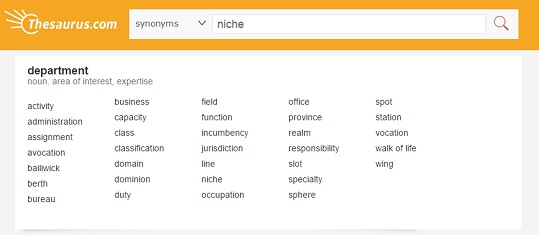
2. INDUSTRY GLOSSARY / JARGON
The Glossary of Industry Terms is a comprehensive list of words and expressions used by experts or trade specialists that may be difficult for others to comprehend. When you’re targeting bloggers who write specifically about your client’s niche, the most useful thing you could do is to familiarize yourself with their jargon first so as to come up with accurate results.
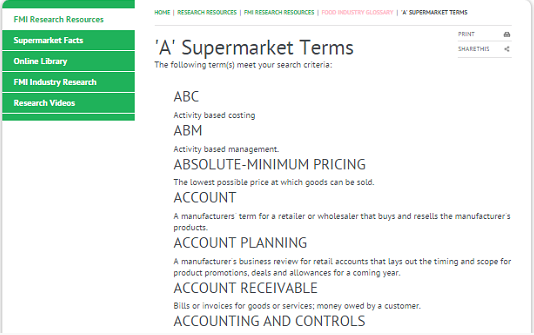
3. BLOG POST TITLES AND URL
Sometimes the greatest things in life are right in front of you. The same holds true for keyword generation. The best ones may just be under your nose. Pay attention to how bloggers construct their post titles and what words appear in their respective URLs. This might come in handy when you want to target articles that tackle the same topics or have roughly the same content. Using the same keywords but coming at it from different angles might just make the biggest difference to your research.
Case in Point: Instead of just using “online shopping” as your keywords, consider a different perspective – “pros and cons of online shopping”, “advantages of online shopping”, etc.
Sample Search Queries
- allintitle:pros and cons of online shopping
- inurl:pros-and-cons-of-online-shopping
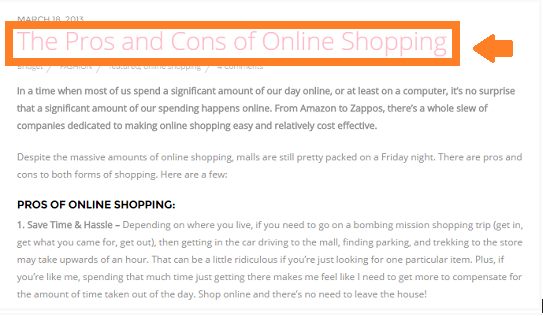
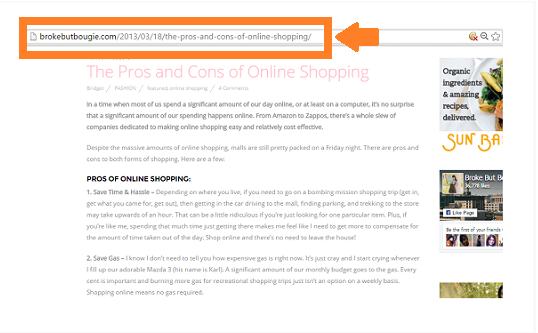
4. Wh AND H QUESTION WORDS
Since we’re on the subject of words, it’s also advisable to scrutinize the kind of language content writers commonly use. Some bloggers endeavor to answer the biggest questions about their niche with their posts. Incorporating the Wh (who, what, when, where, why) and H (how) question words in your queries will help you discover who those bloggers happen to be.
Getting links from these kinds of pages can be quite advantageous as a lot of potential customers tend to look for these types of informative articles before actually coming to a decision. Having your product or service presented to readers immediately as a suggestion can drive valuable traffic to your website.
Example: “What can you do with a food processor?”

5. BE OPEN TO SUGGESTIONS
What’s easy is not necessarily wrong. For other possible keywords, simply check other Google searches related to your query. A list of phrases can be found below the Search Engine Results Page (SERP) whenever you do a Google search. Though not all of these can be helpful all the time, we do stumble upon a few golden nuggets every once in a while.
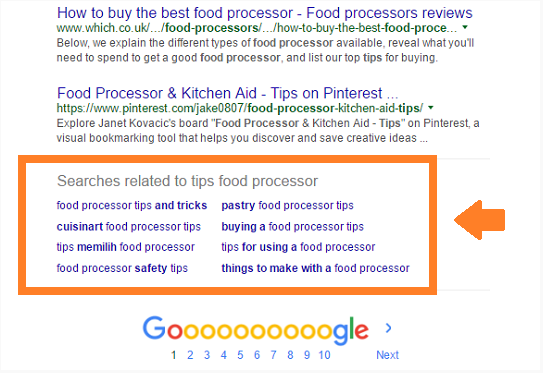
6. THINK OUTSIDE THE BOX
Don’t restrict yourself to just one set of keywords. If you find you’ve exhausted all concepts directly related to your client’s niche, try looking at the bigger picture. Don’t always work from the outside going in. Try the opposite.
If your client specializes in leather belts, don’t get stuck on keywords like “buckles”, “straps”, and “tongues”. Instead, visualize the belt as a little island in the middle of the ocean. The ocean symbolizes what niche encompasses your client’s (e.g fashion). Look for possibilities outside of what has been handed to you.

7. FINDING OPPORTUNITIES IN MISTAKES
Ever notice how people choose to dwell on another person’s faults rather than his successes? Well, the same thinking can be used for our benefit when it comes to blog prospecting. Articles that focus on mistakes, misconceptions, or myths that people believe about certain issues or topics may sound totally negative, but can present real possibilities for building links.
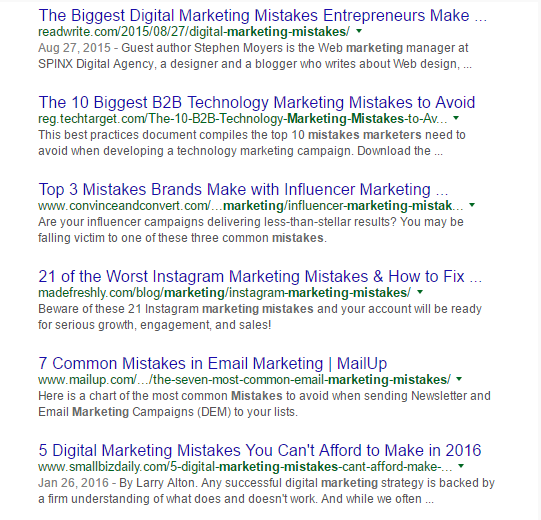
8. LSI GRAPH / LSI KEYWORD GENERATOR
The Latent Semantic Indexing (LSI) Keyword Generator is a tool that comes up with a list of terms and phrases related to your current keyword in a matter of seconds.
“In a nutshell, they are keywords that are semantically linked to your main keyword. In practical terms, Google has confirmed that by using more LSI keywords, your page will typically rank better.”
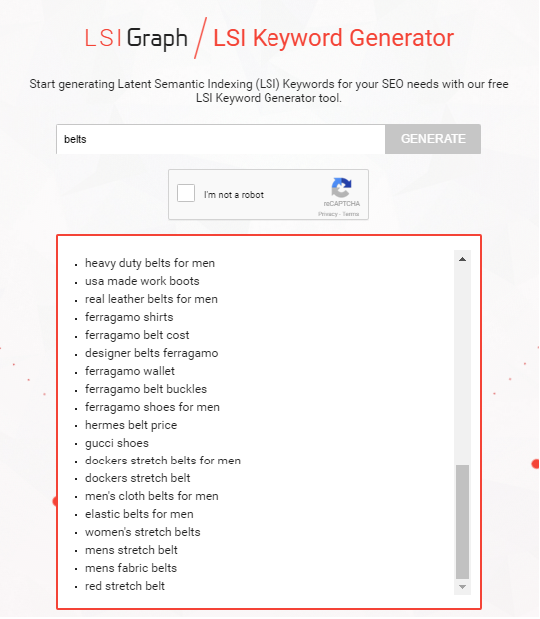
9. KEYWORD PLANNER
Keyword Planner is a Google AdWords tool that can be used by new and experienced marketers for free. According to Google itself, “Keyword Planner is like a workshop for building new Search Network campaigns or expanding existing ones. You can search for keyword and ad group ideas, get historical statistics, see how a list of keywords might perform, and even create a new keyword list by multiplying several lists of keywords together.”
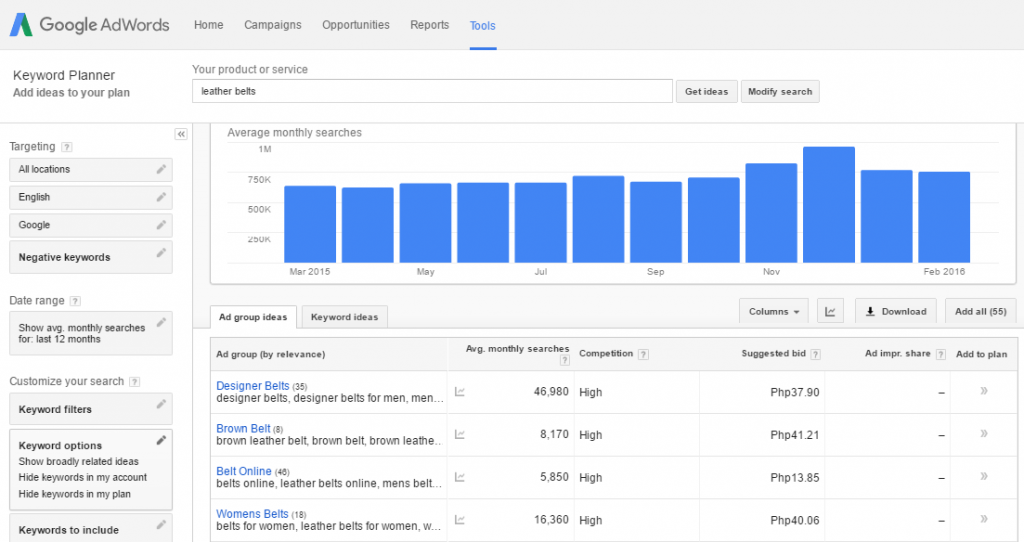
NEW ROADS LEAD TO FRESH OPPORTUNITIES
Always keep in mind that as the digital market grows, so must our creativity flow. At the risk of sounding corny, remember never to limit yourself. In life, as in link prospecting, an option is never truly an option if you only have one.
The Author
Venchito Tampon Jr
Venchito Tampon is a Filipino Motivational Speaker, Corporate Trainer, and a Leadership Speaker in the Philippines. He is the CEO and Co-Founder of SharpRocket, a link building agency. With a decade of experience, Venchito has a proven track record of leading hundreds of successful SEO (link builidng) campaigns across competitive industries like finance, B2B, legal, and SaaS. His expert advice as a link building expert has been featured in renowned publications such as Semrush, Ahrefs, Huffington Post and Forbes. He is also an international SEO spoken and has delivered talks in SEO Zraz, Asia Pacific Affiliate Summit in Singapore, and Search Marketing Summit in Sydney, Australia. Check out his other businesses, Hills & Valleys Cafe, Blend N Sips and Saas Pursuit.
How our LINK BUILDING AGENCY builds 250 links/mo consistently using Predictable Link Building Methodology™…
- Using a SIMPLE and PROVEN system
- Using a SCALABLE strategy
- No private blog networks
- No creepy outreach emails
